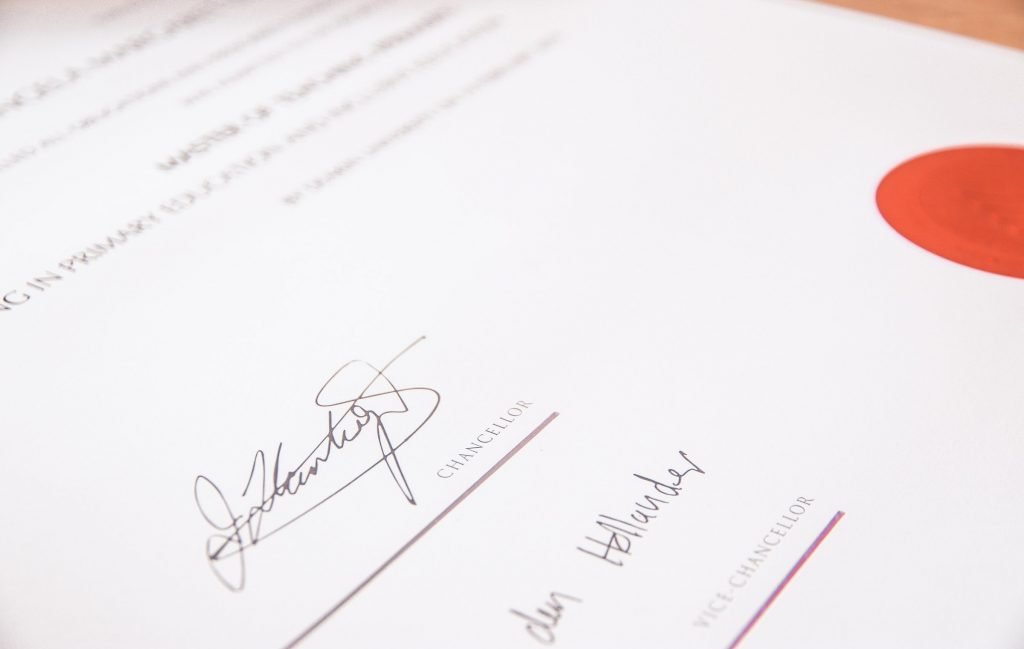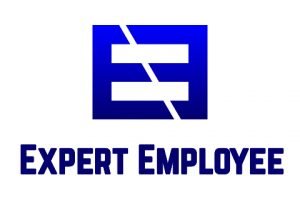This post contains affiliate links.
You just nailed the interview for your dream job and your recruiter extends a verbal job offer with a great salary and benefits. When you get the official offer letter you notice that your employment is contingent on completing a background check with a drug test and your heart skips a beat – what will the background check uncover and will it affect your job offer?
Will that misdemeanor from college come back to haunt you? Will they find the job where you quit after only a month and talk to that supervisor that didn’t like you? What about your low credit score, or your speeding tickets, or that legal weed you smoked last week?
Employment background checks are often the last hurdle to landing that dream job, yet most candidates don’t really know what they are beyond general concepts.
Employment background checks show results from the identity verification, criminal history check, social security number trace, motor vehicle driving record review, sex offender registry scan, drug & alcohol testing, and employment verification. Surprisingly, only 15% of employers review social media for candidates before extending a job offer.

Background checks are used by nearly all employers according to findings by the HR Research Institute. Ninety-six percent of employers conduct some form of employment background screening on candidates, with 86% screening all full-time employees and 67% screening all part-time employees.
Employers perform background checks to protect against workplace violence, employee theft, and to defend against negligent hiring lawsuits for critical positions. Background checks verify claims made by the candidate on their resume and job application – 87% of employers believe that candidates misrepresent themselves during the hiring process.
Pre Employment Background Checks and the Law
Employment background checks are subject to regulations by the U.S. Equal Employment Opportunity Commission (EEOC) and the federal Fair Credit Reporting Act (FCRA). In addition to federal laws, many states have enacted their own regulations and protections (State by State guide).
Employers are not allowed to run third-party background checks until they have provided a written disclosure and received written authorization from the candidate. Employers must ask before doing a background check using a third party employment screening company.
The written disclosure must be clear and conspicuous and not buried within other legal language. Employers will use a separate form to receive authorization for the background check.
Expert Tip: Employers do not need to get your consent if they are not using a third-party service. The HR recruiter and hiring manager do not need to notify you before they call your employer or check references when they do it themselves.
What Questions Do They Ask on a Background Check?
Before running a background screen, the company will collect detailed information from the candidate about themselves and their history. The more detailed and accurate information the better to ensure the background screen only returns information about the candidate and not someone with a similar name.
- Candidate Identity: Full legal name, aliases used, date of birth, Social Security number, and drivers license
- Education: degrees and certifications, granting institutions and dates of attendance
- Work History: previous employers, job title, dates of employment, reason for leaving, and rehire eligibility
- Legal History: civil/criminal issues and driving record
During the background screen, the company will ask detailed questions (jump to section). Contrary to common opinion, there are no federal laws that restrict what an employer can disclose about a former employer so long as what they say is factual and accurate. Although there is not federal law, many states have enacted their own regulations and protections (State by State guide)
The Background Check Process Flow Explained
While the official Fair Credit Reporting Act is in U.S. Code (15 U.S.C. §§ 1681-1681x), the FTC prepared an easier-to-understand pdf version and we have listed the relevant pdf section for each step.
- Employers certify their compliance with FCRA requirements. § 604(b)
- Employers must disclose to the candidate that they may obtain a third-party background check and get the applicant’s authorization. § 604(b)(2)
- The candidate provides personal information, at minimum their full legal name, Social Security number, and date of birth as well as other details as required.
- The professional screening firm identifies the candidate and researches the relevant information to meet the employer’s background check items and depth.
- The background check company prepares the report based on employer requirements and following reporting limitations in the FCRA and state laws. § 605
- Background check companies must use “reasonable procedures to assure maximum possible accuracy of the information.” § 607(b)
- The background check company sends their report on the candidate to the employer.
- Before taking any adverse action, the employer is required to first provide the candidate with a summary notice of their rights and a copy of the report. § 604(b)(3)
- The candidate may dispute any aspect of the report, including incomplete or inaccurate content. § 611
- The background check company must reinvestigate any disputes at no cost to the candidate and complete its reinvestigation within 30 days. § 611(a)
- The employer makes their final decision based on the results of the reinvestigation. § 604(b)(2)
95% of Employers Perform an Identity Verification

In 2019, 95% of employers performed at least a basic identity verification on some or all candidates. A Social Security number (SSN) trace is usually the first step to collect data on a candidate during the background check. The SSN validation confirms that the SSN provided does in fact belong to the candidate and confirms the candidate’s eligibility to work in the U.S.
The trace report matches the SSN across hundreds of databases, both public and private, to identify the names, addresses, and dates of birth associated with that SSN. SSN trace reports can discover information such as maiden names, name variations, aliases, and address history to provide a more complete picture of the candidate identity.
The name and address information from the Social Security trace report is used to perform more thorough searches for the other background check items. More comprehensive identity searches also verify that you have a validly issued ID and that your name is assigned to that ID number. You may be asked to provide your drivers license or passport.
96% of Employers Perform a Criminal Background Check

In 2019, employers screened some or all candidates against a county/statewide criminal search 96% of the time and against a national criminal database 94% of the time.
Criminal background checks return the following information on the candidate if any are found:
- Felony convictions
- Misdemeanor convictions
- Arrests and warrants
- Court records such as decrees, judgments, dockets, orders, etc…
- Sex offenses
- Incarceration records
Criminal convictions stay on your record indefinitely but your state may have additional restrictions. For example, California, Texas, and New York do not allow employers to see convictions more than seven years old for most jobs. Under the FCRA, criminal background check reports are not permitted to contain arrest records or civil suits after seven years unless certain exceptions are met.
Background check company needs to reasonably review any information obtained from the courts prior to reporting information to the employer. They must ensure the information belongs to the correct candidate and is otherwise legally reportable in accordance with FCRA, applicable state laws, and search depth.
Expert Tip: State laws on the use of arrests and convictions in employment are complicated and ever-changing. State Laws on Use of Arrests and Convictions in Employment maintained by Nolo has accurate information on all 50 states.
Criminal background checks include a federal criminal history search as well as searches of national criminal databases. Despite sounding similar, the federal criminal check is distinct and separate from the national criminal database searches.
A federal criminal records search returns information from the U.S. Federal Government’s PACER criminal record system that covers the 94 federal U.S. district and appellate court jurisdictions for federal offenses.
Federal crimes include financial ‘white-collar’ crimes like fraud or embezzlement, human and drug trafficking charges, crimes committed on federal property or against federal employees, or crimes that cross state lines.
A national criminal database search includes searching thousands of digital databases (and millions of records) at the state and county level across the United States. Unlike what Hollywood would have us believe, there is not a single unified national criminal database.
The database search casts a wide net to find the locations of potential crimes nationwide, but because only digitized records can be searched a national criminal database search is not comprehensive and is viewed as a starting point to find signals that warrant additional checks.
Many third-party background check companies maintain their own database comprised of records obtained from the individual state-level Department of Corrections, the administrative office of the courts, county courts, offender registries, OFAC, OIG, and terrorist watchlists
A national criminal database search can identify jurisdictions where a person may have a criminal record that would not be found by a county and state criminal background check.
Expert Tip: The FBI’s National Crime Information Center (NCIC) is not public information and not accessible by third-party background check companies. Only law enforcement, government agencies, and organizations with authorization are allowed to search the NCIC records. Even the NCIC is estimated to contain only 50-55% of available criminal records.
County and statewide criminal background checks review records in the jurisdictions where the candidate has lived, worked, or attended school. State and local crimes include certain violent crimes, burglary, robbery, arson, as well as other felonies and misdemeanors.
The United States has more than 3,200 jurisdictions and the way to access the records can vary from court to court. While some courts allow online access, approximately 30% require in-person direct access. Background check companies that perform real-time criminal records searches maintain a network of court runners to perform in-person courthouse record searches in those jurisdictions.
Expert Tip: Each state classifies crimes into categories (usually ‘felonies’, ‘misdemeanors’, and ‘infractions’) but there are many differences from state to state. For example, speeding violations in many states considered infractions but in states like Texas, Florida, and Ohio speeding tickets are misdemeanors. Know the law in your state before submitting your job application with this guide by FindLaw Speeding: State Laws.
75% of Employers Screen Against Sex Offender Registries
In 2019, 75% of employers screened some or all candidates against a sex offender registry search. All U.S. states are required to maintain a sex offender registry as part of their public record information. The U.S. Department of Justice combines the state information with registries from tribal lands and U.S. territories into the national sex offender registry. Sex offenses will show up in both criminal background checks as well as on the sex offender registry.
74% of Employers Check Motor Vehicle Driving Records

In 2019, 75% of employers checked motor vehicle driving records for some or all candidates. Large employers typically include a motor vehicle record search for all candidates. Smaller employers may only check when the candidate is in a driving role and the motor vehicle record check is required for them to have insurance while driving company vehicles.
When candidates are applying for a role that involves driving they should disclose any history in the past seven years that may be of concern. You don’t need to worry about parking tickets, but moving violations like speeding, rolling through a stop sign, unsafe lane change, or texting while driving should be discussed with your potential employer before they are surprised by the background check report.
The motor vehicle records (MVR) report will return information about the candidate’s driving status and history, which may include:
- Driver information: full name, current address, date of birth, height, weight, eye and hair color
- License information: license number, issue/expiration date, current status, restrictions, endorsements, and class
- License history: revocations, suspensions, and driving record points
- Accident reports
- Moving violations
- Vehicular crimes
- Insurance lapses
- Unanswered or unpaid summons
All states have instant access to their digital driving and motor vehicle records, which means most MVR reports can be completed with 1-3 business days.
62% of Employers Verify Previous Employment History

62% of employers verify previous work history for some or all candidates. Contrary to common opinion, there are no federal laws restricting what information an employer can disclose about former employees so long as it is factual and accurate.
Expert Tip: Many states regulate what an employer may say and disclose about former employees and if the employee’s consent is required. Know your rights with this guide from Nolo: State Laws on References and Statements By Former Employers
In order to reduce the risk of defamation lawsuits, employers frequently enact company policies that limit the information they will provide on former employees to only dates of employment and final job title or position. Some employers also provide the candidate rehire status.
Background check companies have come to expect this limited information but may still ask other questions as part of the employment history verification. For a potential employer to verify your job performance they have limited options, usually only by contacting references you provide or reaching out to their network of professional contacts through a back-channel reference check.
Common questions asked to previous employers during the background check:
- <candidate> indicated they worked for your company from <date to date> and their job title was <title>. Can you please confirm?
- Will you please verify <candidate>’s job responsibilities and achievements?
- Why did <candidate> leave your employment?
- Would you rehire <candidate>?
- Who else would you recommend I speak with to learn about <candidate>?
- Is there other information I should know about <candidate>?
Expert Tip: Salary history used to be a common question, but state and local governments are increasingly enacting regulations that prohibit employers from requesting previous salary information from job applicants. Current State-wide and local salary history bans.
Can a Background Check Find Jobs I Left off My Resume?
No background check can reveal a list of past employers for a candidate. Background checks will only have the information that you list on your resume or the job application. Very rarely will background checks uncover other information that leads to an employer not disclosed by the candidate.
With respect to work history verification, they will only be able to contact the previous employers that you provide. However, background check investigators will frequently research their own contact number for your previous employer to ensure they are actually speaking with a company representative rather than using the phone number you provide.
62% of Employers Complete Drug & Alcohol Screens

Drug testing is used by employers to avoid hiring applicants that use illegal drugs in order to provide a safe workplace for employees and the general public. The drug test is usually requested after you receive your conditional offer of employment. When your potential employer requests a drug screen you will go to a clinic or lab that will collect a sample of your urine or hair.
Urine is mandated for regulated drug tests, like those conducted by the U.S. Dept. of Transportation, and is the most common drug screen used by all employers. Urine has a detection window of 5-10 days, hair drug tests can detect drug or alcohol use for up to 90 days.
Even though hair has a longer detection window, hair tests can not detect current use (only past) and do not detect alcohol. Blood or saliva can also be used for drug screens but have much shorter detection windows and are not commonly used for pre-employment screening. Fluid testing can detect recent usage and has the additional advantage of being 100% observed, which makes it difficult to cheat or adulterate the test.
Expert Tip: If you have any concerns about passing the drug screen you should test yourself at home first. Here is a reliable at-home test kit (buy on Amazon) that matches the FDA designated cut-off levels and uses the same test science as the lab screen tests.
What Is the Most Common Pre-Employment Drug Test?
The 5-panel urine test is the most commonly used pre-employment drug screen because it is simple and cheap. The 5-panel test examines a urine specimen for the following illicit substances:
- Amphetamines (meth, speed, crank, ecstasy)
- THC (cannabinoids, marijuana, hash)
- Cocaine (coke, crack)
- Opiates (heroin, opium, codeine, morphine)
- Phencyclidine (PCP, angel dust)
The more extensive (and costly) typical 10-panel drug test screens for substances on the 5-panel test as well as the following:
- Barbiturates (phenobarbital, butalbital, secobarbital, downers)
- Benzodiazepines (tranquilizers like Valium, Librium, Xanax)
- Methaqualone (Quaaludes)
- Methadone (often used to treat heroin addiction)
- Propoxyphene (Darvon compounds)
Because the 10-panel test is more costly it is not commonly used. However, the 10-panel test is standard practice for positions where the safety of others is at stake, such as medical professionals, law enforcement, heavy machine operators, and those in the federal or local government.
Employers that wish to have a strict drug-free workplace may choose to test for additional substances:
- Hallucinogens (LSD, mushrooms, mescaline, peyote)
- Inhalants (paint, glue, hairspray)
- Anabolic steroids (synthesized, muscle-building hormones)
- Hydrocodone (prescription medication known as Lortab, Vicodin, Oxycodone)
Your potential employer decides which substances candidates will be screened for and selects the appropriate test with the lab. Depending on the tests selected, both illicit drugs and prescription medications may appear in the results. Any supplements or prescription medications you are taking should be disclosed to the lab at the time you provide your sample and you may be asked to provide proof of your prescription from your medical professional.
Expert Tip: There is no comprehensive federal law that regulates drug testing in the private sector but many states have enacted their own statutes. The ACLU maintains a summary of the regulations enacted by each state State-by-State Workplace Drug Testing Laws.
Can you fail a drug test for marijuana if it is legal in your state? Under federal law, cannabis use is illegal by the Controlled Substances Act. However, individual states are increasingly implementing laws that protect off-duty employees and job candidates from adverse action for off-duty marijuana use – refer to this State by State guide from Nolo.
Will a Failed Drug Test Show up on a Background Check?
Pre-employment drug test results are confidential medical records and do not show up on public records or background checks, results can only be shared with your consent or required by law. The lab and employer are bound by law to maintain confidentiality of your protected health information and could face legal liability if they release the information to unauthorized third parties.
When you fail a drug test as part of the pre-employment screening the company will probably rescind their job offer, but the failed drug test will not affect your ability to compete for other jobs. Unless the failed drug test results in other actions, such as a criminal conviction or parole revocation, there will not be a public record of the results. Prospective employers may still learn about previous failed drug tests if the candidate candidate self-discloses, by checking the candidate’s references, or through industry connections.
As of January 6, 2020, drug tests required by the DOT (truck drivers, airline workers, school bus drivers, and other safety-sensitive job duties) are reported to the FMCSA Drug and Alcohol Clearinghouse when results fail or the test is refused. Clearinghouse information is not public record and prospective employers require your consent to access your information. However, refusing to provide consent will preclude you from executing safety-sensitive job functions.
52% of Employers Verify Education and Professional Qualifications

52% of employers verify education and professional licenses for some or all candidates. To verify education and qualifications the background check company will contact the educational institutions to confirm your dates of enrollment, course of study, and degree or certifications earned. When professional licenses are required for the position they will also contact the appropriate governing body to verify the licenses are current and up to date.
Many educational institutions utilize educational reporting providers like National Student Clearinghouse and will not respond to requests for information directly. The reporting provider verifies student records, transcripts, and degrees in a timely manner while also ensuring student records are protected under the Family Education Rights and Privacy Act (FERPA) requirements.
Employers are realizing the risk of diploma mills and are increasingly verifying education qualifications themselves or thru a third party rather than relying on a diploma or transcript from the candidate. Diploma mills are designed to appear legitimate at first glance but are not accredited educational institutions. Diploma mills provide degrees, diplomas, and certifications as a purely transactional purchase.
48% Do Not Perform Credit or Financial Checks on Any Candidates

Credit checks on potential candidates are nearly evenly split – 44% of employers complete credit or financial checks on some of all candidates while 48% of companies do not perform credit checks on any candidates. Employers run credit checks on job candidates to reduce risks such as embezzlement, theft, and negligent hiring lawsuits.
Potential employers are likely to include a credit check as part of the background investigation for any job that handles money as well as positions that involve significant financial access and responsibility, such as senior executives. However, credit checks are standard in many sectors: law enforcement, military, accounting, financial planners, government jobs, casino workers, lawyers, banking, and finance.
Potential employers don’t see candidate credit scores, but they do see extensive information similar to what lenders see: open lines of credit for mortgages and credit cards, outstanding balances, auto & student loans, foreclosures, late or missed payments, and any bankruptcies or collection accounts.
52% Do Not Perform International Checks on Any Candidates

International background checks are more expensive, both in direct cost and in the time they require to complete. For this reason, most employers don’t bother unless they are in the habit of employing international candidates. Only 29% of employers perform international checks on some or all candidates, but 52% of employers do not perform international checks on any candidates.
Candidates in the U.S. that have lived, worked, or studied abroad require an international background for a thorough screen. Details are more difficult to obtain and the investigation takes more time to comply with other countries’ information-sharing regulations and practices.
53% Do Not Perform Fingerprint-Based Criminal Searches for Any Candidates

53% of employers do not perform fingerprint-based criminal searches for any candidates, but 31% complete fingerprint-based searches on some or all candidates. Unsurprisingly, fingerprint background checks use fingerprint data to match the candidate to a criminal record. Fingerprint background checks use the FBI Next Generation Identification (NGI) system that replaced IAFIS in 2014.
Fingerprint background checks are required for jobs in public schools, hospitals, airports, and may be required in other industries by state law or professional license requirements.
Despite the media touting fingerprint background checks as the gold-standard, the reality is that fingerprint checks have significant limitations. Fingerprints are not always filed with criminal records they are linked to arrest records – more investigation is necessary to understand the outcome of the case and if it led to a conviction.
The NGI contains more than 98 million records (source) which sounds big but is far smaller than the 650 million criminal records (source) in the proprietary databases of commercial background check companies. Fingerprint screenings are not inherently better than name-based criminal background checks, they complement one another.
73% Do Not Check Social Media for Any Candidates

Only 15% of employers check social media for some or all candidates, but 73% do not check any social media for any candidate as part of the screening process.
While there certainly have been high-profile firings from social media activity, companies have not widely implemented social media checks as part of their hiring process. The few cases that have happened get wide-spread air time in the news and are sometimes triggered by rediscovery of posts years after they actually took place.
HR teams are well aware of the legal minefield presented by checking social media themselves. Anytime you look at social media for a candidate you are likely to find details that fall under protected class information, and once the hiring team sees that information they can’t unsee it.
In business, when something costs extra and doesn’t generate profit it usually proceeds slowly. Any checks of social media are best performed by a third-party background check company, usually for an extra charge.
Compliant social media screenings are legal and a third-party service gives additional protections by only showing business-related details to the employer and avoiding protected class content.
Expert Tip: The FCRA requires that background checks must be clearly disclosed to and authorized by the candidate. Read the disclosures you before you sign them and you won’t be surprised.
How Long Does a Background Check Take?
Background checks are not like Hollywood fiction, it takes more than a few seconds to complete a reasonable background check. There isn’t one single source of information about you that will satisfy the expectations of a thorough background check. ‘Instant’ pre-employment background checks are simply screening candidate information against digital databases that are not comprehensive.
Most background checks are completed within 3-5 business days after the background check company receives the candidate information. Two weeks is common for candidates that have lived in many jurisdictions or have a common name – background check companies need time to comply with FCRA accuracy requirements.
Reasons Why Background Checks Get Delayed
- Inaccurate or incomplete information and missing forms. Any typo or missing information from the candidate may not be uncovered until the background check is in progress and requires additional time to contact the candidate to resolve the discrepancy. Missing required disclosure and authorization forms or signatures are another source of delay.
- Slow responses from other parties. Background checks can be delayed when a previous employer, school, or reference doesn’t respond in a timely manner or is no longer in business.
- Holidays, weather, and computer system problems. Court records are subject to availability went the courts are open and the systems are functioning. Certain jurisdictions require in-person visits to request records. Criminal record checks for the state of Virginia even require request forms to be submitted using snail-mail with a notarized signature and payment check!
- International screening. When the applicant has lived, worked, or gone to school in other countries their background in those countries may also be investigated. More time is required to comply with other countries’ information-sharing regulations and practices, delays of 2-3 weeks are common.
- Fingerprint screening. Fingerprint background checks are required in certain industries such as education, financial, transportation, and healthcare. The requirements must follow FBI procedures and while many reports are returned within a week a full investigation may take a full month.
Candidates can prepare for a background check by having complete and accurate information available. Candidates can prepare W-2s from previous employers and records from schools they attended, employers also have the option to self-certify items if they choose. Contact references in advance and request they respond promptly to a reference check. Once a background check is in progress candidates need to answer additional requests quickly to ensure the entire process goes smoothly.
What Do Background Checks Look For?
Background check companies prepare their screening reports based on the requirements received from the employer. Only your employer determines the specific background check requirements based on the job position and the organization’s risk profile.
The background check is compiled to present the facts about the candidate, but the background check company does not provide any recommendation about what action to take from the findings. Only your employer decides how to interpret the results of the screening report. A delivery driver may be excluded due to too many speeding tickets, but an identical driving record may be of no concern for an office position.
Your potential employer must notify you before they take any adverse action based on information from a third-party background check. The company must provide you a copy of the report and a summary notice of your rights under the FCRA.
You have the right to dispute the accuracy and completeness of any information in the report. The background check company is required to investigate the disputed information and notify you of the results within 30 days.
If you are still not satisfied, you have the option to include a brief statement to rebut the findings in the final report delivered to your potential employer. Only after the final report is received can your potential employer make their final hiring decision.
You are also entitled to an additional free report from the company that supplied it within 60 days of the employer’s decision not to hire you, but you must request it from the background check company.
How Far Back Do Background Checks Look?
The FCRA restricts reporting of non-convictions as well as other potentially adverse information that occurred more than seven years ago in most situations.
